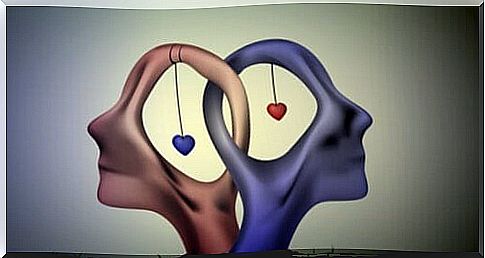Interpersonal Psychotherapy: A New Way To Understand And Treat Depression

If we started a survey and asked about the meaning of “depression”, we would get answers like “a deep inner sadness that goes hand in hand with listlessness”. But depression is rarely associated with the social context in which we live. Humans, however, are social beings and the context is as important to them as the function of their organs.
Based on the assumption that the environment is important in treating depression, new types of interventions and therapies have been developed. These focus on the environment of those affected. And one of these new approaches is interpersonal psychotherapy to treat depression.
In this article, we introduce interpersonal psychotherapy and explain how it can help manage depression. We also want to go into their history and explain what makes them different from other psychological interventions. In addition, let’s talk about the efficiency of treatment in adults, adolescents and children.
There is no more depressing feeling than feeling alone and depressed around people.

Features of interpersonal psychotherapy
Interpersonal psychotherapy was originally developed by Gerald L. Klerman and his team to help prevent depression. However, after analyzing its benefits, the scientists concluded that this type of therapy also makes us stronger and more resistant to other problems.
The great advantage of this form of therapy is that it takes into account the patient’s emotional ties and interpersonal relationships. This therapy responds to the social context in which the patient lives.
Problems that interpersonal psychotherapy addresses
In interpersonal psychotherapy, depression is understood as a disease that rests on three pillars: symptomatology, social operation, and personality. The therapeutic model focuses on four problematic aspects that favor the development of depression:
- Interpersonal conflicts: These can be family, otherwise social or job-related. Conflicts of this type are inevitable because they arise because of the different points of view that people can take. These conflicts are addressed in therapy when they cause major problems . Interpersonal psychotherapy is a good way to resolve such conflicts.
- Role transitions: Disagreements lead to arguments and role fights. The person concerned and their environment expect different behaviors on the part of their fellow human beings, which correspond to their specific roles. In other words, there is disagreement about what is appropriate behavior. Such differences can be relieved of tension in therapy.
- Grief: When the pain of losing a loved one is too intense or continues for a long period of time, we can experience pathological distress. Interpersonal psychotherapy helps us deal with such emotions. It also helps us bridge the void that loss has created in a healthy and positive way.
- Social deficits: This problem occurs when the patient does not have a resilient network of social support. As a result, feelings of loneliness and isolation arise. In this case, interpersonal psychotherapy helps to build one’s own social network and improve social skills.
In the context of depression, these variables are extremely important. Because if one of these factors is negatively influenced, there is a risk that we will get into an “acute crisis”. This can lead to psychological problems, such as depression. As can be deduced from the list above, interpersonal psychotherapy as an intervention form is not only effective for depression, it can also be used for eating disorders, for example.

Interpersonal psychotherapy in childhood and adolescence
According to experts, interpersonal psychotherapy is suitable for treating depression in both adults and adolescents. This is important because it underscores the importance of the ability to maintain social relationships. Dealing with emotions that can arise from our relationships is just as important.
Interpersonal psychotherapy therefore takes into account that we live in a social environment. This is constantly changing and we have to be able to adapt to it. To do this, we need to understand that our emotions can be triggered by social influences and improve our ability to face our problems. In this context , depression should no longer be understood as a personal problem, but rather as a contextual or relational problem.








